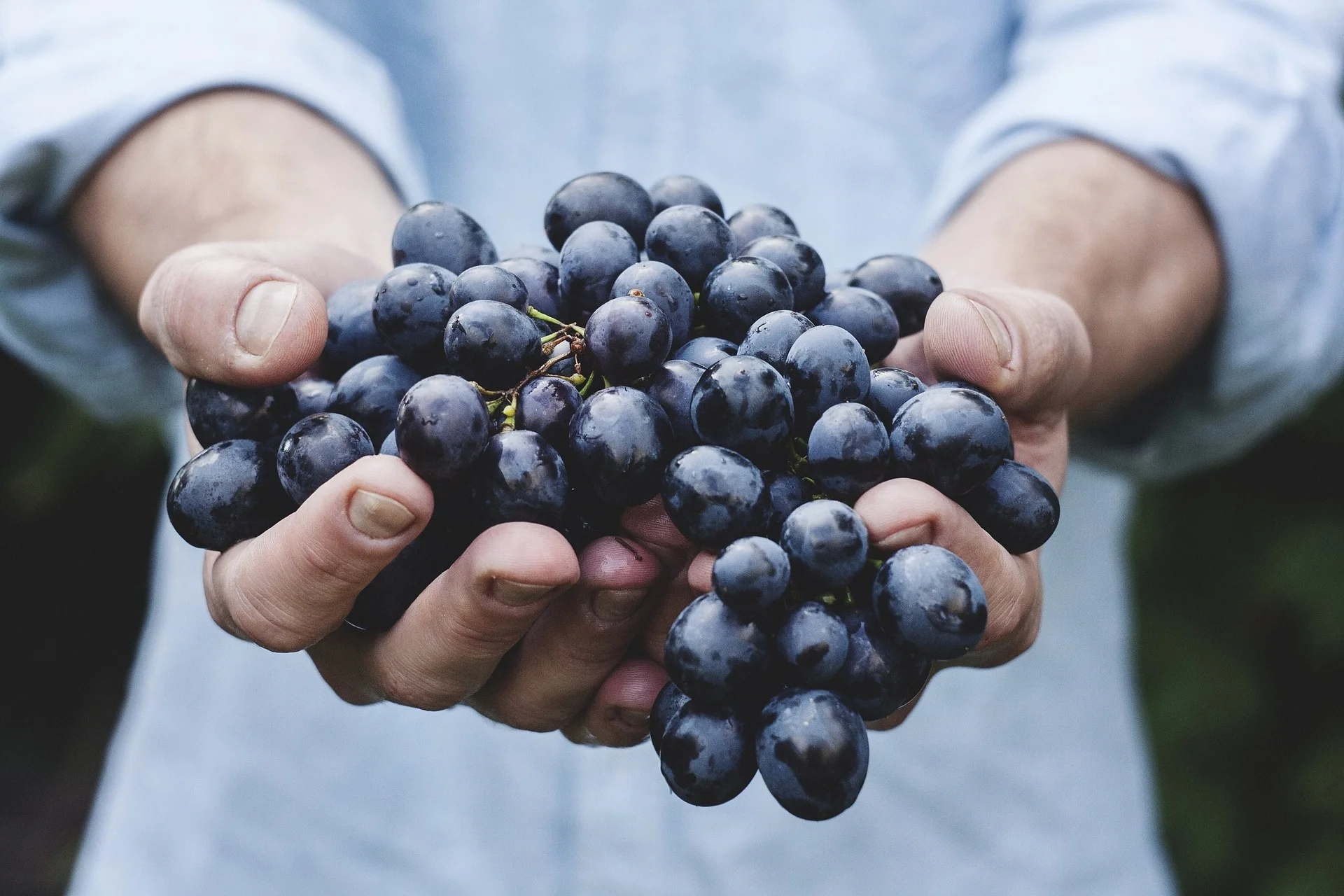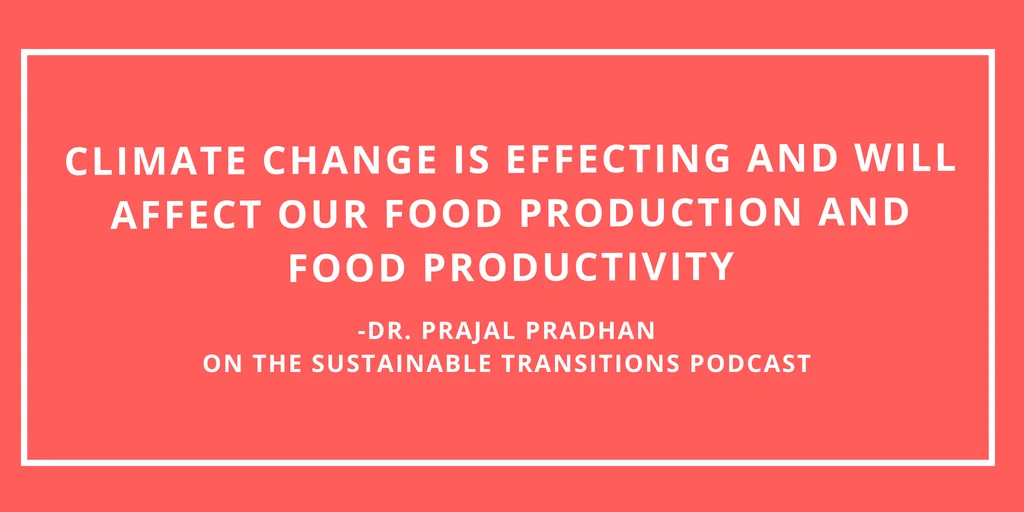Food Systems
Today’s podcast is with Dr. Prajal Pradhan, a researcher at the Potsdam Institute for Climate Impact Research.
I talk to Prajal about his motivation to study food systems and climate change. He explains the relationship between agriculture and the environment. He also explains what we can do in terms of our diet impacting the environment, mainly by limiting our animal products, eating local, and limiting food waste. We discuss how diets are changing with development. We explore the subject of yield gaps and which countries have the largest yield gaps. Lastly, we discuss what the public and policymakers can do to reduce the negative impacts on the environment.
Podcast Outline
1. Introduction (0:00)
2. Introduction section: Big ideas
a. What first drew you studying food systems and climate change? (0:50)
b. Is that what first drew you to the topic? (2:22)
c. What were the main goals of your research? (3:34)
d. So Malthus, a lot of people think that he was wrong. Do you think that is changing now with climate change (5:02)
e. How do you typically conduct your analysis? (7:23)
3. Details
a. How do our diets affect climate change? (8:35)
b. What is a ruminant and non-ruminant animal? (10:42)
c. And so which one is worse for the environment, the cows and the goats? (11:01)
d. How will our changing diets affect the climate in the future? (11:05)
e. So there have been some movements lately, for example vegetarianism and veganism seem to be ever more popular, did you see anything like that in your results or data? (12:28)
f. What is food waste and how do you measure food waste?? (16:24)
g. How do you measure food waste? (17:32)
h. Where do people waste the most food? (19:43)
i. Why do you think that is-do you get wealthier and you can just afford to throw out more food or are you buying different food that goes bad faster? (21:04)
j. What is a yield gap? Why does it matter in the context of climate change? (21:59)
k. How would we improve the yield gap? (24:12)
l. Climate change, from my understanding at least, we can expect even less predictable weather even more diseases in crops-do you think it will make it even harder to decrease the yield gap in the future? (25:57)
m. Which countries have the biggest yield gap? (26:45)
4. What does it mean
a. Why do you think that understanding the relationship between food systems and climate change is important? (27:09)
b. What can the public do to address some of these problems? (27:46)
c. Is it better to eat local meat or vegetables from far away? (29:59)
d. What types of policies would you recommend to deal with these issues? (30:55)
5. Sign off (32:14)
What to know more about Prajal’s work? Check out the links below:
The music in the podcast is Harx Hitter by Uncanny

